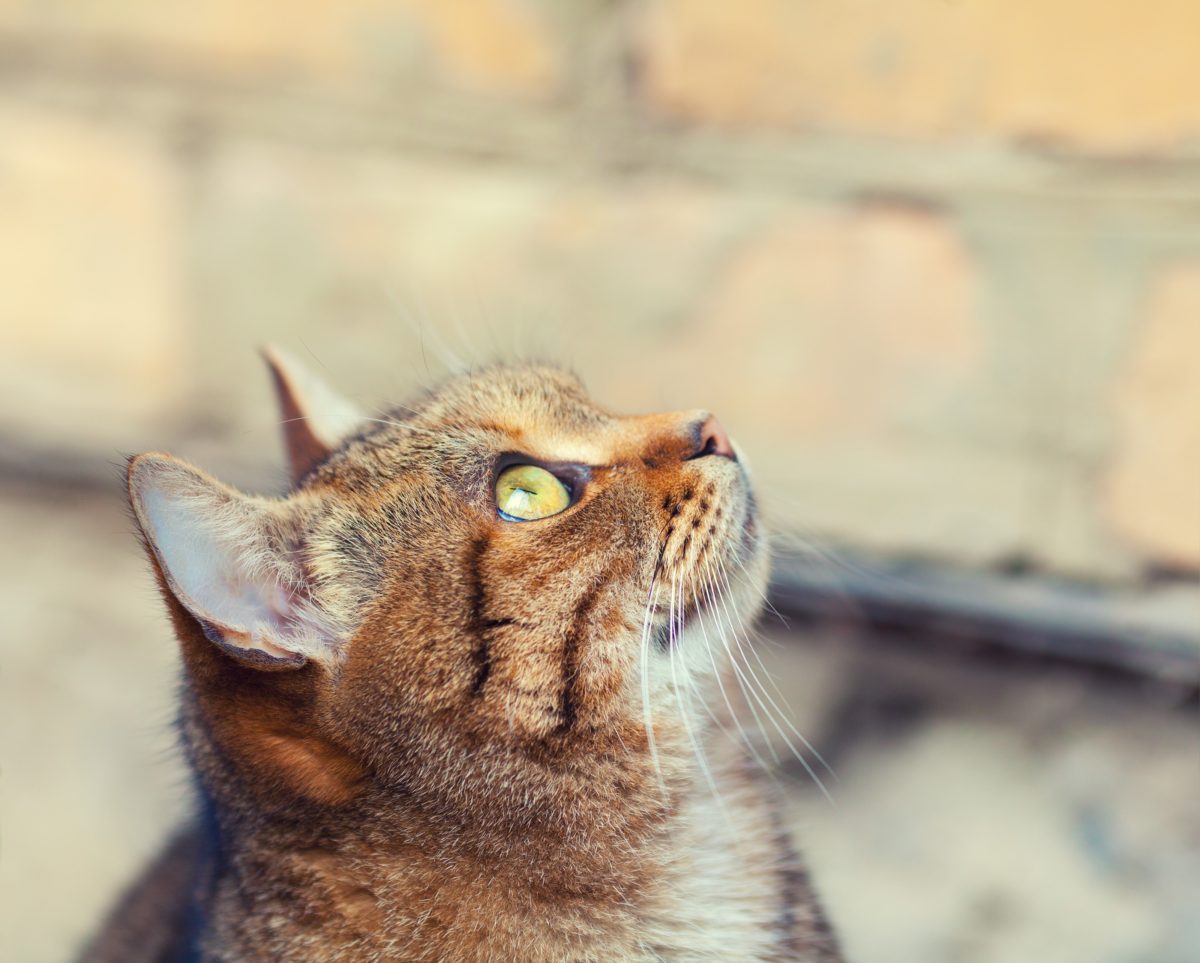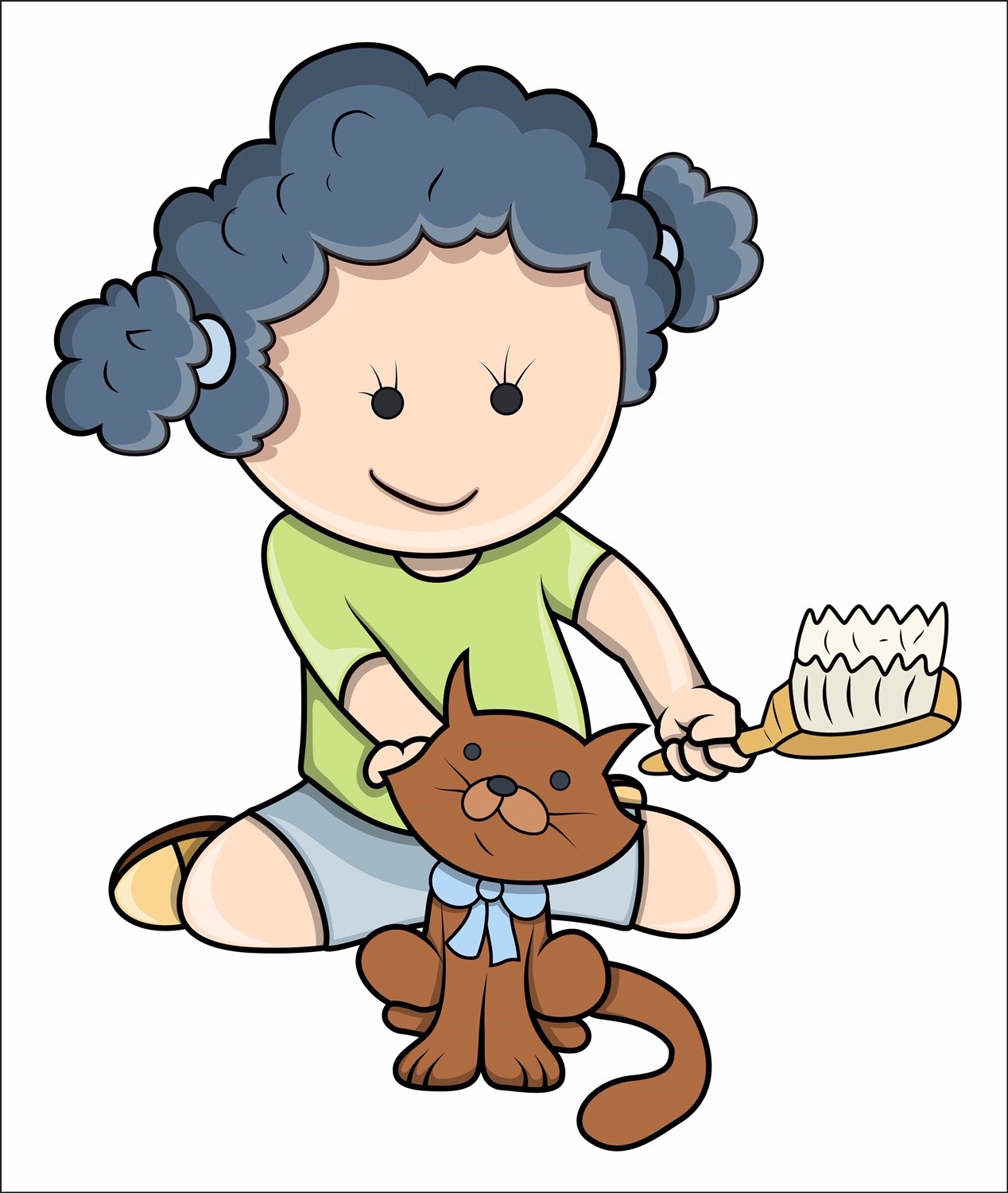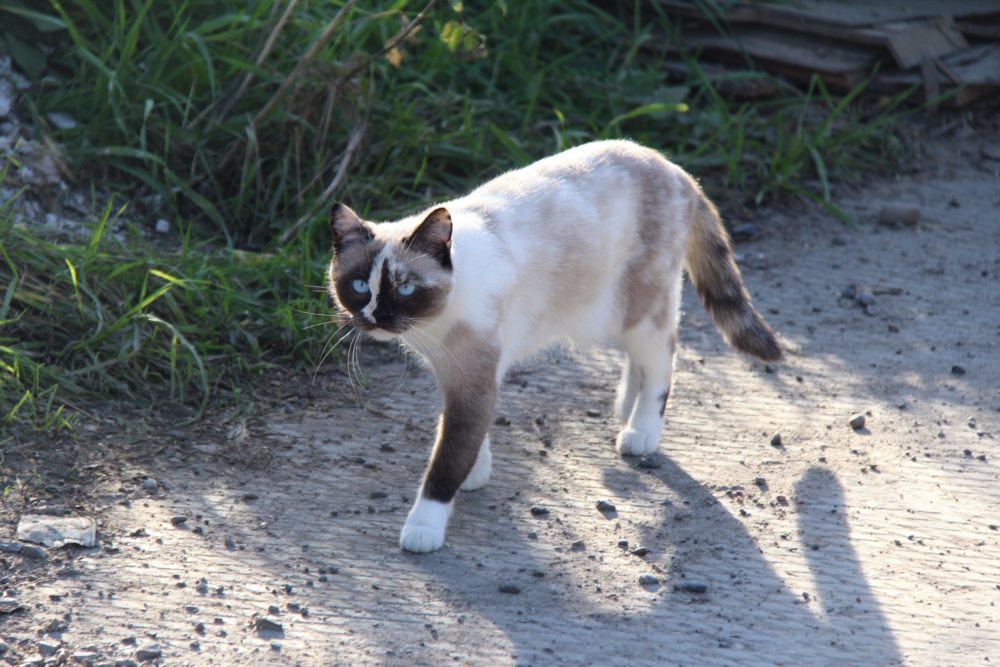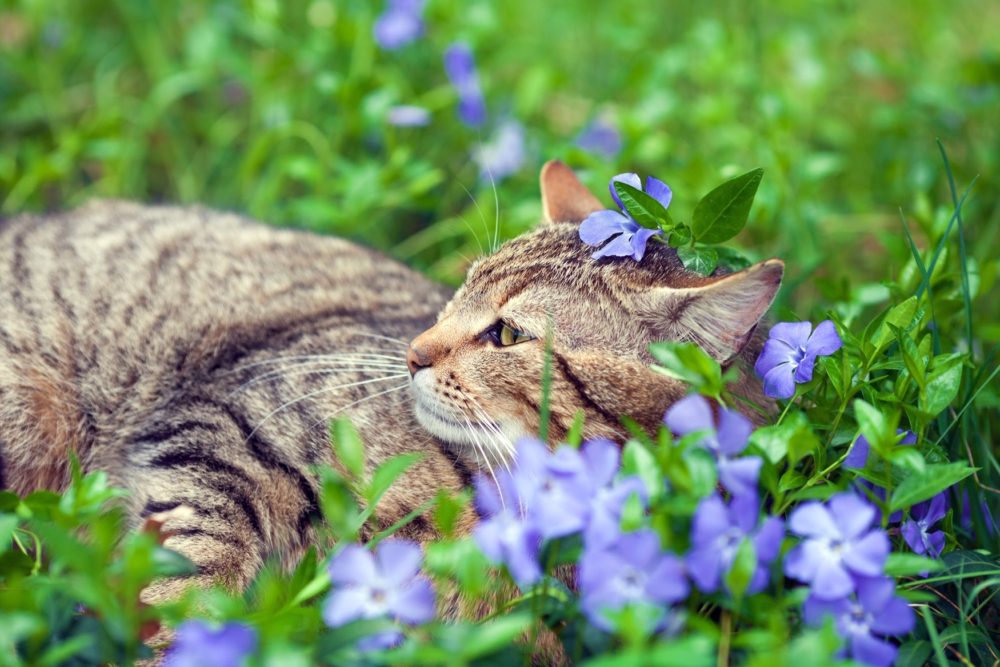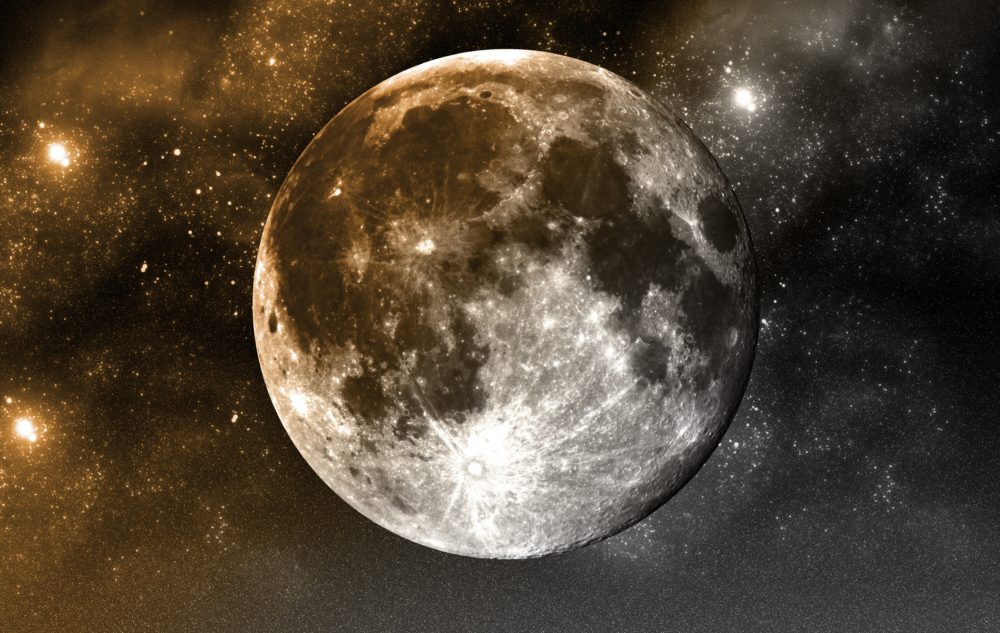
Does the full moon affect my cat?
Our young cat Misty, is an outside cat, but returns home early evening and sleeps indoors at night. If it seems she has lost track of supper time, a good shaking of the treat box whilst calling her name usually sees her bounding home. However, there have been a few occasions when I’ve been out calling her, and it’s either been very late when she finally returns, or she hasn’t retuned at all until the next morning. And it suddenly dawned on me one night whilst I was pacing the gardening, well past midnight, calling her name, willing her to return home, the full moon shining brightly……. was the full moon responsible for this? Was there a pattern?
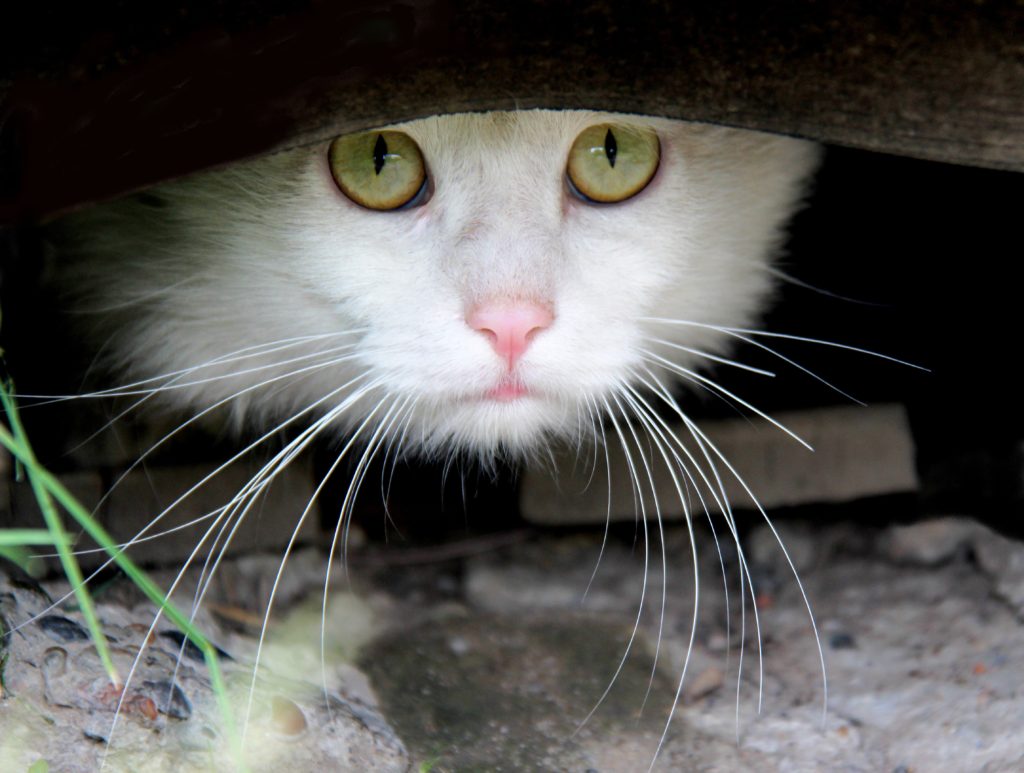
Does the full moon affect my cat?
In our experience, is certainly seems to! Of course, this is based purely on our own personal experience, but the coincidences certainly seemed to justify a little further investigation. And it seems Misty isn’t the only cat to exhibit uncharacteristic, quirky and rebellious behaviour during the full moon. There are many posts, blogs, questions from cat owners, all with their own story to tell, and answers to seek regarding strange full moon behaviour.
Cat behaviour during full moon
Cat owners and veterinarians have noted that cats certainly seem more mischievous during the full moon. The most common behavioural characteristics that have been noted amongst cat owners during the full moon include:
- their cats seem more prone to hiding,
- restlessness
- increase in playfulness and mischievousness
- keeping the company of other cats
- more meowing and generally noisier
There are various statistics and studies which record an increase in admittance to veterinary clinics during the full moon period. One unfounded study claimed a 23% increase in cat visits to the clinic during full moon, and 28% increase in dogs. The University of Colorado, College of veterinary medicine concluded from their studies that cats were 30% more likely to become injured near or during full moon time. Whether this was because cats spent more time outside at night due to the bright moonlight, and night time in itself poses a higher risk of injury to pets, or due to an unknown effect of the moon, the answers remain inconclusive.
Some believe the moon influences cats, and other animals, circadian rhythm. Circadian rhythm is the physical, mental and and behavioral fluctuations and variations that occur over the course of a 24-hour cycle. Animals, plants and most living things display circadian rhythm in some form, these changes include heart rate, sleeping patterns, hormones, body temperature and blood pressure. With the moon affecting factors on earth such as gravity and night time light some theorists believe that this then has an effect on the behaviour of cats, dogs – and people.
What should I do if my cat is exhibiting strange behaviour during full moon?
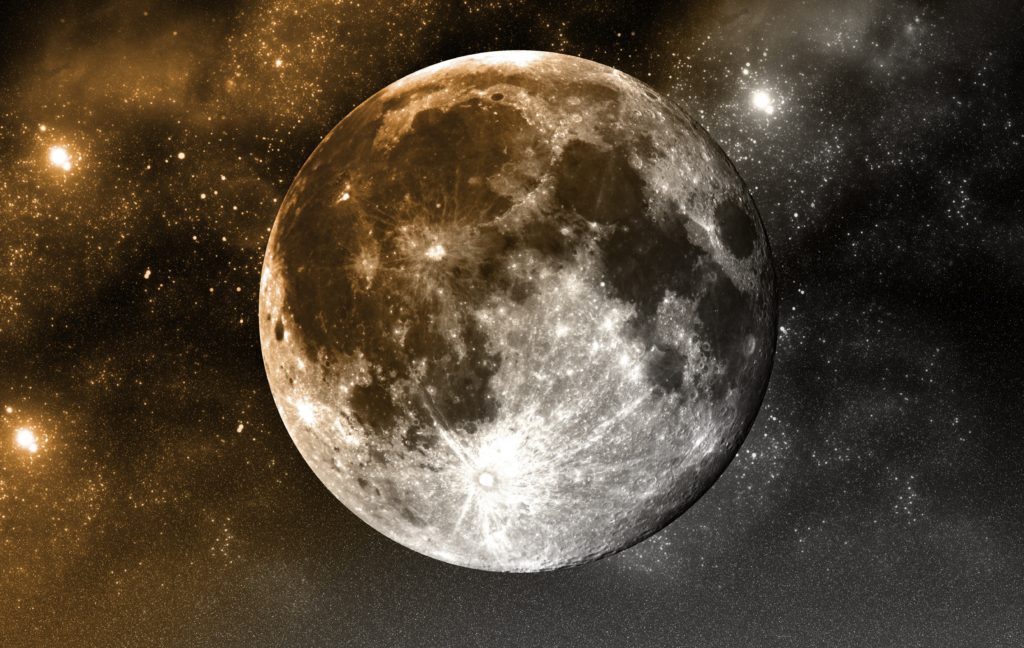
Unfortunately, there doesn’t seem to be much that a cat owner can do to regulate this strange behavior. It may be an idea to track the lunar cycle to become aware and unsurprised when these changes occur. You could keep your cat indoors for the few days over the full moon if it keeps her safe.
Other phases of the moon and possible effect on cats
The full moon is merely one phase of the lunar cycle. Many astrologers have presented theories of how other moon phases may affect your cat and pets.
New Moon: A new moon is the first phase of the moon. It is when the Sun and the moon are aligned, and the Sun and the Earth will be on opposite sides of the moon. This occurs every 29.5 days and the moon will not be visible except when silhouetted during a solar eclipse. The new moon supports intention and a time to tune wholly into nature. Cats seem to naturally attune to the need to relax during this phase.
Super Moon: A super moon is a term used to describe a full moon or super moon which coincides with the moon being at its closest point to the Earth in its orbit. During this period, senses are heightened, and cats use their instincts to stay away from any dangers and to stay where they feel safer.
Waning Moon: A waning moon is the moon at any time after full moon and before new moon when the illuminated area of the moon is decreasing. During this phase, animals will hunt, gather food, prepare homes – a real nesting instinct mode is activated.
Waxing Moon: A waxing moon is the opposite of a waning moon – the moon at any time after new moon and before full moon, so called because the illuminated are of the moon this time is increasing. This is a calm period for the animal world, a time to slow down, to rest and sleep.
Blue Moon: This is a rare event that occurs only once every three years. It is when there are two full moon occurrences in one month. For our pets, it’s as if it’s a double dose of the full moon – another opportunity to witness your cat’s playfulness and games of hide and seek!
How the moon affects the earth?
There is a strong magnetic pull between the Earth and the sun and the moon. It is this magnetic pull from the moon that affect the large bodies of water on the Earth. The moon, and its location, has the biggest effect on the tides, with the Sun and Earth’s rotation also having some impact. During full moon the tides are at their highest.
Does the full moon have an effect on humans?
There is very little scientific evidence to support this theory with many studies remaining inconclusive. However, many midwives claim they always seem busier at full moon, accident and emergency units at hospitals see increases in patient admissions and I wonder how many of us have a poor night sleep at this time too? Prisons claim an increase in violence amongst inmates, admissions to psychiatric hospitals increase and claims of many more human miseries. There are several myths and legends, over many centuries and from all around the world, regarding the full moon’s effect. There is no denying the beauty, intensity and the magical feel when you look up in the night sky and see the bright full moon. Quite possible, all a coincidence, who know, the mystery remains at present. Given all these occurrence or coincidences amongst humans, it is no surprise that a change in behavior has been noticed in the animal world too.
Therefore, do we really need to consider the moon when considering our cat’s needs and behaviours?
The tales of moon madness, lunar lunacies and unexplained animal behavior – do we really need to worry? We all get to know our cats, and pets, better the more we discover about them and their environments. If a pattern emerges around times of full moon, or indeed the other lunar phases, maybe we can simply just be aware and fascinated at mother nature’s power.
You may be interested in reading our article on catio’s / cat enclosures which we have used to solve the problem of keeping our outside cat safe at night.
Other articles you may find of interest:
Can cats sense a storm? And how to keep cats calm if they are anxious
The energetic power of cats and their spiritual meaning
